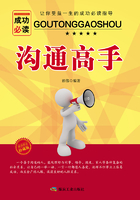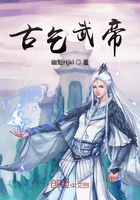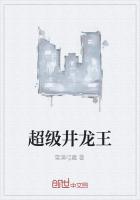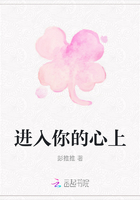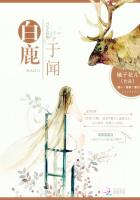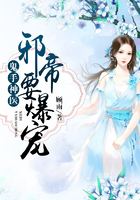We discussed it and we decided it was best we give up the baby so I canconcentrate on my career. I was in fits of tears but I went through with theabortion.
I threw myself into my job and, when I was 29 years old, my hard work finallypaid off. I was promoted to the head of my department.
But that didn’t mean I could relax. I still had to prove myself to my malecolleagues and I actually worked even crazier hours than before. And then I gotpregnant again. That period was vital to my career, so without asking my husbandI went to the hospital and had another abortion.
When I turned 31, I felt that my position in the company was secure. Myhusband and I had already bought a house and we owned two cars. We agreedthat it was the right time to start a family.
But after two years of trying we weren’t having any luck so we went to thehospital for a checkup. I was diagnosed with secondary infertility. The doctorssaid I had blockages in my fallopian tubes.
Since then, we’ve visited a lot of hospitals, had a lot of examinations andspent a lot of money. We’re still waiting for some good news.
We are under pressure from both our parents to have a child and it haspushed us to the edge. As a last hope, we tried artificial insemination in 2010but it still didn’t work. It’s really hard to describe my mood. I could be a motheralready but I gave up the chance. I think the abortion I had when I was 29 is thething I regret most in my entire life.
Although the road to becoming a mother is very hard, and with little hope left,we’ll spare no efforts to keep on trying.
Li Miao was talking to He Na.
September 21, 2010
Short-term gain vs long-term strain
The 4-2-1 structure poses challenges to providing care for the elderly.
Duan Yan in Beijing reports.
After another national holiday spent squeezing onto cramped trains to visit relatives, LiWenbo and his wife Jia Xuan had the luxury of leaving their 2-year-old daughter withLi’s parents in early October 2010.
Like many modern couples, being able to get some respite from the daily pressures ofparenthood is the best thing about the so-called 4-2-1 family.
The reverse-pyramid dynamic - four grandparents, two parents and one child - israpidly becoming the new norm in Chinese cities, largely as a result of three decades of thecountry’s family planning policy, which resulted in most couples having only one child.
However, although the first generation born after the policy is reaping the benefits(read: six people to care for one child), sociologists warn that in 10 to 15 years the burdenof providing elderly care could be too much for smaller families.
“Even though elders in these 4-2-1 families are in good health now and can help withchores and child care, the problem in the foreseeable future will be the lack of manpowerto take care of them,” said Yuan Xin, a professor at Nankai University’s population anddevelopment research institute.
Traditionally, Chinese people are expected to care for their parents in later life. Yet,the fact families are shrinking and people are living longer means younger generations andChina’s elderly care services face immense pressure in coming years.
China had 100 million one-child families in 2000, according to a research by Yuan.
He estimates that by the end of 2010, as many as 18 million married couples will includetwo people born to only-child families.
Results of a 2005 government-backed study of 1 percent of the population alsoshowed the average family size had fallen to 3.13 people (2.97 in urban areas), comparedto 4.41 in 1982.
And some 4-2-1 families are already experiencing the problem of elderly healthcare.
When Li Jinya’s father was severely injured in a car accident in 2009, she said it was ashock to realize just how fragile the family structure has become.
“It’s lucky my mother is helping to take care of my son,” said the 24-year-old, whois juggling the family’s grocery store in Beijing’s Chaoyang district with caring for herhospitalized father.
“Sometimes I fear that if my parents died, I would be left alone in the world all bymyself,” she said, fixing her reddened eyes on the half-empty coffee cup in her hand. Herhusband Wang Xiaobo, 25, is studying for a post-graduate degree in Hefei, capital ofAnhui province, and can only return for short periods.
“He fell asleep at the hospital when he was taking care of my dad,” complainedLi Jinya. “I know he is tired - I’m tired too - but this is my father’s life we’re talkingabout.”
The feeling of insecurity has led to tension and many arguments at home, she said. “Ican’t sleep these days. I feel I should go to see a therapist but I’m too scared.”
Changing attitudes
Even though two people from single-child families can legally have a second childunder China’s family planning policy, surveys show that the enthusiasm among urbanitesfor larger families is dwindling.
The reasons for this are many. However, the biggest effect is a growing level ofinsecurity about the future.
“When people see that traditional family values are being weakened, they start toworry,” explained Sun Yiqun, a research director at the Ministry of Human Resources andSocial Security. “This is compounded by concerns among the elderly and middle-aged thatthere isn’t a sufficient social support network.”
Bupa, a British healthcare organization, recently polled 12,262 people in 12 countrieson their attitudes toward ageing and found almost one-third of Chinese respondentsadmitted they feel depressed when they think about getting old.
This could suggest why suicide ratesamong the elderly in urban areas have seensuch a worrying increase in recent years.
According to Jing Jun, a sociologyprofessor at Tsinghua University, the annualsuicide rate among 70- to 74-year-oldssurged to more than 33 for every 100,000people between 2002 and 2008, up froman average of 13 in the 1990s.
The number is even higher in ruralareas, where economic pressures andthe migration of farmers to cities haveweakened the social status of senior citizens.

![[苏]哈尔拉莫夫苏联学校教育教学原理与教育学教程](https://i.dudushu.com/images/book/2019/09/28/055813000.jpg)




